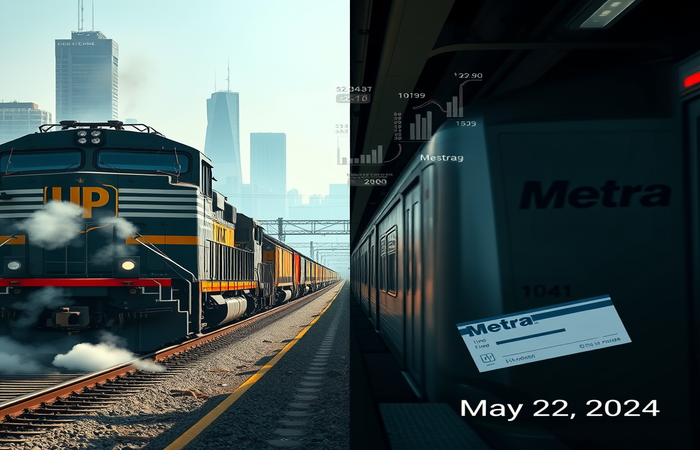Bangkok MRT: Solar Powering Sustainable Transit

This article explores the innovative integration of solar power into Bangkok’s Mass Rapid Transit (MRT) system, marking a significant step towards sustainable urban transportation in Thailand. The initiative, a collaboration between CK Power and Bangkok Expressway and Metro, involves harnessing solar energy to supply approximately 12% of the power needs for the MRT Blue Line and MRT Purple Line. This project goes beyond simply reducing reliance on the traditional electrical grid; it represents a proactive approach to environmental responsibility, aligning with Thailand’s national goal of achieving net-zero greenhouse gas emissions by 2065. The long-term implications extend beyond immediate environmental benefits, encompassing economic advantages, technological advancements in rail infrastructure, and the potential for replication in other urban transit systems globally. The following sections will delve into the technical aspects of the project, its economic viability, its environmental impact, and its potential influence on future railway developments in Thailand and beyond.
A Landmark Partnership for Sustainable Transit
The agreement between CK Power and Bangkok Expressway and Metro signifies a pivotal moment in Thailand’s commitment to renewable energy. This collaboration leverages CK Power’s expertise in renewable energy generation and Bangkok Expressway and Metro’s operational experience to integrate solar photovoltaic (PV) technology into a large-scale public transportation system. The project encompasses a substantial area of 106,000 square meters, utilizing rooftops of rail depots, parking areas, and office buildings to maximize solar energy capture. The 25-year contract guarantees the supply of 452 million kilowatt-hours of solar power, reducing reliance on the conventional grid and decreasing the MRT’s carbon footprint. This large-scale implementation contrasts previous smaller-scale solar integration projects, setting a new benchmark for sustainable practices in the Thai rail sector.
Economic and Environmental Synergies
The integration of solar power into the Bangkok MRT system offers substantial economic and environmental benefits. The reduction in electricity costs is a significant advantage, offsetting a portion of the operational expenses associated with the MRT. This economic advantage contributes to the long-term financial viability of the project, demonstrating the potential for substantial cost savings through the adoption of renewable energy sources. Simultaneously, the environmental impact is noteworthy. The project is projected to eliminate approximately 300,000 tonnes of carbon emissions over its lifespan, a substantial contribution to Thailand’s broader climate change mitigation goals. This reduction in greenhouse gas emissions aligns perfectly with global efforts to reduce carbon emissions and combat climate change. This project demonstrates the feasibility of combining economic efficiency and environmental sustainability in large-scale transportation infrastructure.
Technological Advancements and Future Prospects
The successful implementation of this project showcases advancements in solar PV technology and its adaptability to complex transportation systems. The large-scale integration of solar panels into existing rail infrastructure requires careful planning, efficient energy storage solutions, and robust power management systems. This project’s success serves as a compelling case study for other cities worldwide considering similar initiatives. The experience gained from this project will facilitate the development of more efficient and cost-effective solar integration strategies in the future. Furthermore, the technological expertise developed in designing and implementing this system can be transferred and applied to other transportation sectors, accelerating the transition to renewable energy within the wider economy.
Global Implications and Sustainable Rail Transportation
The Bangkok MRT solar power initiative holds significant implications for the global rail transportation industry. Many countries are exploring ways to decarbonize their transportation networks, and Bangkok’s initiative presents a successful model. The project demonstrates the technical feasibility, economic viability, and environmental benefits of incorporating renewable energy sources into large-scale transit systems. The success of this project can encourage other urban areas to investigate and implement similar solutions. This transition towards sustainable rail transport is crucial for reducing greenhouse gas emissions in the transportation sector, and projects like Bangkok’s showcase a path towards environmentally responsible and cost-effective solutions. The knowledge and experience gained in Bangkok can be shared and adapted to various contexts, promoting a global shift towards cleaner and more sustainable public transportation.
Conclusion
The integration of solar power into Bangkok’s MRT system represents a significant advancement in sustainable urban transportation. The partnership between CK Power and Bangkok Expressway and Metro has resulted in a landmark project that delivers substantial economic and environmental benefits. By harnessing solar energy to supply a portion of the power needs for the MRT Blue Line and Purple Line, the project successfully demonstrates the technical feasibility and financial viability of large-scale renewable energy integration into existing transit systems. The projected reduction of 300,000 tonnes of carbon emissions significantly contributes to Thailand’s national climate change mitigation goals. Furthermore, the project highlights the potential for substantial cost savings through reduced electricity consumption. Beyond the immediate impact, this project serves as a powerful example for other cities globally, demonstrating the potential to combine economic efficiency and environmental responsibility in urban transportation infrastructure. The success of this initiative will likely inspire similar projects worldwide, accelerating the transition towards cleaner, more sustainable, and cost-effective rail systems. The long-term implications include not only reduced environmental impact but also the advancement of renewable energy technologies in the rail sector, potentially influencing policy decisions and investment strategies related to sustainable transportation worldwide. The Bangkok MRT project stands as a testament to the innovative and impactful potential of collaborative efforts towards a greener future in the railway industry.



